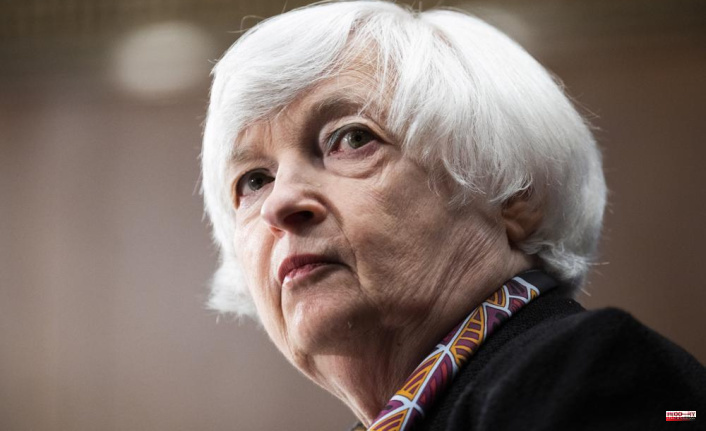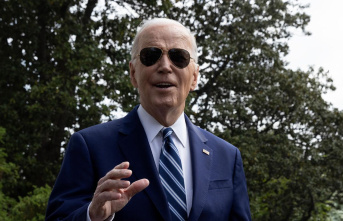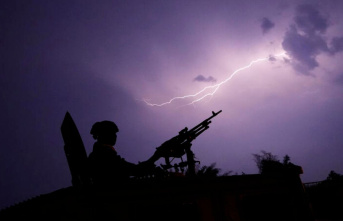On Wednesday, the U.S. will close all avenues that Russia used to pay billions of dollars back to international investors. This makes a Russian default on its debts almost certain since the Bolshevik Revolution.
In a notice, the Treasury Department stated that it did not intend to renew the license which allowed Russia to continue paying its debtholders via American banks.
The Treasury Department granted banks permission to process dollar-denominated bonds payments from Russia since the initial rounds of sanctions. This window closes midnight on May 25, 2015.
Already there were signs that the Biden administration wasn't willing to extend the deadline. Janet Yellen, Treasury Secretary, stated that the window was there to allow for an orderly transition and for investors to be able sell securities.
"The expectation was it would be limited in time," Yellen stated.
Russia wouldn't be able to repay international bond investors if it didn't have the right to use U.S. bank branches to pay its debts. To pay its obligations, the Kremlin used JPMorgan Chase as well as Citigroup.
Jay Auslander is a well-known sovereign debt lawyer who has previously represented clients in other debt crises such as the one in Argentina. He stated that most institutional investors in Russian debts have sold their holdings at this point, knowing the deadline was approaching. The only two options for those who still have the debts is to sell them or wait to see if it can be litigated over the next few decades.
"The majority of those who wanted to leave have left. He said that the only problem is finding buyers.
It appears that the Kremlin foresaw the possibility that the U.S. wouldn't allow Russia to continue paying its bonds. To get ahead of the May 25, deadline, the Russian Finance Ministry pre-paid two bonds due Friday.
On June 23, Russia's next debt payments will be due. These bonds, like other Russian debts, have a 30-day grace window -- meaning that Russia would be in default by July 31, unless the unlikely event of a Russia-Ukraine conflict.
Since months, investors have almost been certain that Russia would default. Russian debt is covered by insurance contracts. Rating agencies such as Standard & Poor's or Moody's have placed Russia's debt in junk territory.
Since the 1917 Revolution when the Russian Empire fell and the Soviet Union was formed, Russia has not defaulted in international debts. Russia defaulted in the 1990s on its domestic debts, during the Asian Financial Crisis. However, international aid helped to repair that default.
Auslander stated that a Russian default will have minimal to no impact on the global economy this time, as Russia has been disconnected from global financial markets for several months and investors had been anticipating a default. Similar statements have been made by Biden officials.
Russia could then approach the U.S., British, or European courts to claim that it was forced to default by circumstances beyond their control. This concept is known in finance as force majeure. It would attempt to restore its standing on global financial markets. Auslander stated that it may prove difficult to win this argument, owing to Russia's decision to invade Ukraine.












